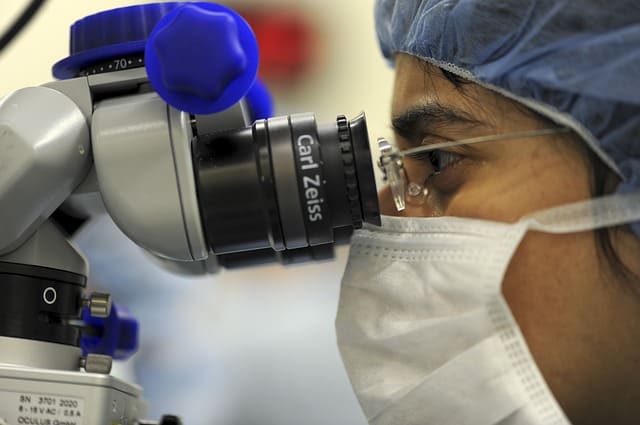A group of scientists from Singapore, China, Australia and the United Kingdom, led by Sven Petersson of the Carolina Institute in Stockholm, transplanted bacteria from older mice to young mice and found that the cells in their gut and brain began to divide more actively. This belies the existing notion that the microbiota in the old organism only exacerbates ageing and physiological dysfunction. The researchers assigned butyrate, a short-chain fatty acid, to be responsible for stem cell stimulation. In itself, it also caused similar effects in mice.
With age, the body changes not only the work of its own cells but also the composition of the intestinal microbiome. It is still not clear what caused this – perhaps a change in diet or changes in the functioning of the intestines – but somehow the dominant bacterial clans are losing their positions. Opportunistic species are being replaced by those who would not be able to compete with them in a young organism.
A person and his microbes spend their whole lives side by side, so it is difficult to say which of them begins to age first and causes the ageing of the other. To somehow understand this, scientists try to transplant intestinal bacteria between animals of different ages and look at the result. Previous experiments have already found out that transplantation from young donors to the old can prolong the life of the recipient. This is true at least for short-lived fish and prematurely ageing mice.
To study further, scientists conducted a reverse experiment. Researchers transplanted a microbiome from older mice to young mice. Donors were healthy 24-month-old animals (the lifespan of a laboratory mouse – 2-3 years), and the recipients – 2-3 month-old non-microbial mice. Bacteria from ordinary young mice were transplanted as control of non-microbial mice.
The exchange of microbes consisted of two phases: faecal transplantation and joint life in cells – so that the skin bacteria could also colonize young recipients. The scientists then took samples of the microbiota and confirmed that in young mice it became similar to old mice, that is, the transplant was successful.
It is known that with age the reserves of stem cells in the body are depleted, and the survivors share less often than in youth. So the researchers tested what was going on in the hippocampus of the recipient mice. This is one of the few areas in the brain wherein adult mice neurogenesis continues – the division of nerve tissue cells. Scientists found that after transplanting old microbes, the brain grew by about a quarter, and this effect persisted for several months.
To confirm their observation, the authors drew attention to the intestines of mice. After transplanting, more villi appeared in it, and they themselves became longer. The number of dividing cells also increased.
The researchers hypothesized that microbes had some effect on the body’s metabolism – this could explain the effects on organs as distant from each other as the intestines and brain. So they calculated the level of expression of different genes in the liver, the main responsibility for metabolism. It turned out that under the influence of “old” microbes in liver cells began to work more actively genes that are associated with the response to stress – despite the fact that with age cells to stress react, as a rule, getting worse. In addition, the expression of genes associated with longevity, such as sirtuin, has increased, and mTOR expression, a protein that, on the contrary, accelerates ageing, has decreased.
Scientists have suggested that the influence of microbes is based on some kind of metabolite, which could pass through the blood-brain barrier. When they collected metagene intestinal bacteria from older mice, they found that there were quite a few butyrate producers among them. It is a short-chain fatty acid that feeds the gut cells, is absorbed into the bloodstream and acts on various other organs, including cognitive improves animal abilities and promotes learning.
When scientists fed butyrate to the young microbial mice, they discovered the same effects as after the transplantation of bacteria – the same changes in gene expression in the liver and the growth of dividing cells in the hippocampus.
The animals from which the bacteria were transplanted were elderly but healthy. This may mean that in some ways they are similar to long-living people. At the same time, it has long been known that people who live to a certain age in the gut accumulate “useful” opportunistic bacteria that do not disrupt the working body and help it to adjust to another regime. Bacteria from the guts of mice are probably similar, and butyrate is their main tool of influence.
Until now, it was thought that only a bacterial transplant or blood transfusion from young animals could have a beneficial effect on the body, including – to start dividing cells in the hippocampus. But in this experiment, microbial transplantation from young-old mice did not increase blood butyrate levels or cause cells to divide.
In this experiment, the scientists found that the expression of the growth factor FGF21 is growing in the liver cells, and in the cells of the hippocampus.
